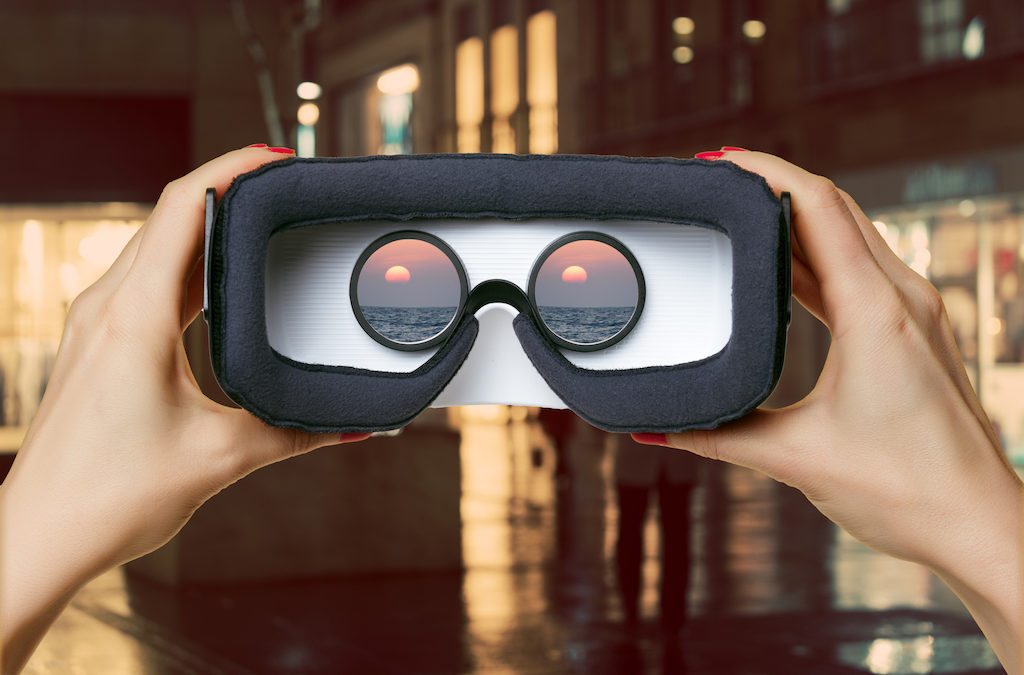I was reminded of this phenomenon years later when a woman in one of my Infinite Potential, Infinite Possibilities small group intensives was talking about her somewhat horrible dating history and had the insight that she “had assholes on her eyeballs”. This prevented her from really getting to know anyone at a deeper level because she just saw all their worst traits writ large as soon as she met them.
Here’s how I wrote about it in You Can Have What You Want:
“What are the people like on the far side of the river?”
The ferryman looked at him curiously.
“What are the people like where you come from?”
The traveler grunted in disgust.
“Horrible, selfish, greedy, and mean-spirited. That’s why I’m leaving!”
The ferryman shook his head sadly.
“I’m afraid you’ll find the people on this side of the river are much the same.”
A bit later in the journey, a second travler approached the ferryman and once again asked, “What are the people like on the far side of the river?”
The ferryman looked at her curiously.
“What are the people like where you come from?”
The traveler sighed.
“Wonderful, kind, supportive, and generous. I hate to leave them behind.”
The Ferryman smiled.
“I wouldn’t worry about it. I think you’ll find the people on this side of the river are much the same.”
This “confirmation bias”, where we give undue weight to any apparent evidence that confirms what we already think, has huge ramifications in pretty much any area of our lives:
- If we think people are out to get us and rip us off, we’ll find evidence of it wherever we go
- If we think people are essentially kind, we’ll notice kindness all around us because we have kindness on our eyeballs
- If we think life is difficult, we’ll notice the difficulty and be surprised by or dismiss anything that’s easy
- If we think there is a guiding intelligence behind life, we’ll find evidence of it in everything we do
This is not to say that people are kind or out to rip us off, nor that life is easy or difficult, nor that there is or isn’t a guiding intelligence behind life. It’s simply to point out that looking outside of our own mind for evidence of any of those things is an essentially flawed process. We see what we have on our eyeballs, not what exists or is possible in the world.
Here are three simple strategies for discerning what’s real and what’s just “on our eyeballs”:
1. Look for intelligent people who disagree with you
The mind works more like a Facebook algorithm than most of us care to admit, showing us more of what we already like and screening us off from opposing viewpoints. By actively seeking out intelligent people we respect who have a different point of view from ours, we stay open to possibilities that don’t seem to be a part of our day to day experience.
2. Look for what’s always true no matter what
I like watching football; my wife likes watching documentaries. This does not mean that one is better than the other. It means that human beings have preferences. Similarly, some people experience having a child as a gift and others as a burden. This does not mean children are a blessing or a curse– it means that it’s possible for human beings to experience anything in an infinite number of ways.
3. Look within
There is a hidden capacity in human beings to know beyond our own experience. This inner knowing is based on insight – what the spiritual teacher Syd Banks described as “a sight from within”. We might call it our innate wisdom – a deeper sense of truth that exists before (and after) our conditioning. This wisdom will guide us if we let it, taking us beyond what’s on our eyeballs and into a deeper reality.
So while it can seem like a positive life strategy to “get better thinking onto our eyeballs”, an even more powerful way of changing our lives for the better is to seek that which exists before thought even comes into form. As Antoine de Saint-Exupery wrote in The Little Prince:
“It is only with the heart that one can see rightly; what is essential is invisible to the eye.”
With all my love,
![]()





